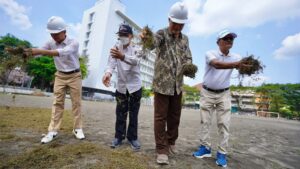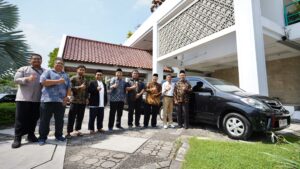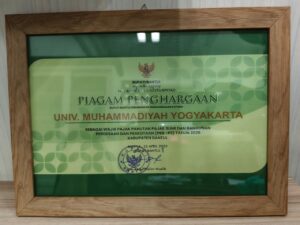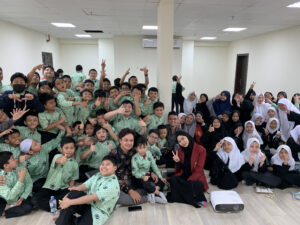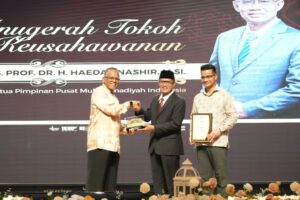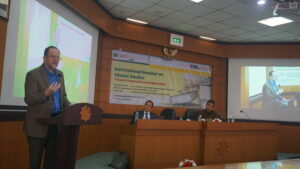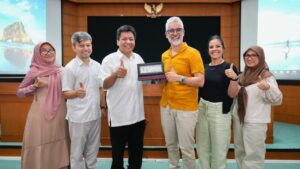Radicalism has widely been propagated in public. An issue of the Islamic State of Iraq and Syria (ISIS) has also has brought the belief in ASEAN countries. The belief propagation is due to not only environmental factor but also internet development and it may impact the future of ASEAN countries.
The aforementioned paragraph was uttered by a lecturer of Department of International Relations of National University of Singapore (NUS) Prof. Bilver Singh. He was a speaker of a public lecture organized by Ahmad Syafi’I Ma’arif School of Political Though and Humanity of Universitas Muhammadiyah Yogyakarta (UMY). It was conducted on Saturday (10/10) at meeting hall of Graduate School of UMY, Floor 4.
Prof. Bilver conveyed that radicalism in ASEAN, like in Indonesia, Malaysia, Singapore and Thailand, is easily noticed and openly carried out. One of the causal factors is the internet development. The radicalism is spread through internet. As the result, public recognize the belief and engage in it. “A research finding revealed that a lot of people in the world accessed the propagation of radicalism. It displayed that radicalism has existed quite widely and it is not only in Asia states,” he elucidated.
He inserted that the other factor making someone follow the radicalism is family factor. The belief also easily exists in a family. “Family is the other causal factor of radicalism propagation. Family is the stepping stone of the propagation to go in a community or a country,” he informed.
Therefore, he recommended that people in the world not remain silent toward the issue of radicalism. He mentioned that the radicalism propagation is a challenge and it should be critically recognized. For one reason, the radicalism is dealing with not only religion, particularly Islam, but also politics and economy of a country. “Hence, cultural power is necessary to confront the radicalism, especially in ASEAN. The revolution can be undertaken through cultural approach so that the radicalism can be prevented. Besides, good and tight relationship among ASEAN countries is also necessary to cope with the radicalism since ASEAN is essentially us, and is not a separate organization,” he ended.

